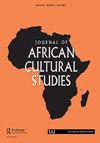我们现在称之为赝品的东西将来会成为真品:全球非洲艺术市场与赝品的时空
IF 0.9
2区 社会学
Q2 CULTURAL STUDIES
引用次数: 1
摘要
摘要“发明”于殖民地迁移和现代主义艺术运动的历史,非洲艺术长期以来因其所谓的殖民前和部落性质而受到重视。在传统背景下制作的物品被视为真品,而其他通常模仿传统风格的待售物品则被视为赝品。尽管这种区别在非洲跨国艺术贸易中继续得到不同参与者的支持和延续,但我认为,再生的时间视野和多样化的互动地理已经开始挑战非洲艺术中真品和赝品的普遍性和不可转换性,我以我对洛美非洲艺术市场的研究和中国在北京的非洲艺术收藏和展示为出发点,来观察真实性的构建,以及赝品的时间和空间。这篇文章的目的是展示市场商品化和参与地域的变化对加强和破坏非洲艺术中真品和赝品区别的影响。本文章由计算机程序翻译,如有差异,请以英文原文为准。
The Things We Now Call Fake Will in the Future Become Authentic Objects: Global African Art Markets and the Space and Time of the Fake
ABSTRACT “Invented” out of a history of colonial displacement and the modernist art movement, African art has long been valued for its supposedly precolonial and tribal qualities. Objects made within a traditional context are deemed as authentic, whereas others made for sale, often imitating traditional styles, are deemed as fake. While such a distinction continues to be upheld and perpetuated by different actors in the transnational African art trade, I argue that the regenerative vision of time and diversified geography of interactions have begun to challenge the pervasiveness and inconvertibility of authentic and fake in African art. Specifically, I use my study of the African art market in Lomé and a Chinese collection and display of African art in Beijing as starting points to look at the constructedness of authenticity, and the time and space of the fake. The aim of this article is to show the effects of market commoditisation and changing geographies of participation in reinforcing and destabilising the distinction of real and fake in African art.
求助全文
通过发布文献求助,成功后即可免费获取论文全文。
去求助
来源期刊

Journal of African Cultural Studies
Multiple-
CiteScore
1.70
自引率
10.00%
发文量
13
期刊介绍:
The Journal of African Cultural Studies publishes leading scholarship on African culture from inside and outside Africa, with a special commitment to Africa-based authors and to African languages. Our editorial policy encourages an interdisciplinary approach, involving humanities, including environmental humanities. The journal focuses on dimensions of African culture, performance arts, visual arts, music, cinema, the role of the media, the relationship between culture and power, as well as issues within such fields as popular culture in Africa, sociolinguistic topics of cultural interest, and culture and gender. We welcome in particular articles that show evidence of understanding life on the ground, and that demonstrate local knowledge and linguistic competence. We do not publish articles that offer mostly textual analyses of cultural products like novels and films, nor articles that are mostly historical or those based primarily on secondary (such as digital and library) sources. The journal has evolved from the journal African Languages and Cultures, founded in 1988 in the Department of the Languages and Cultures of Africa at the School of Oriental and African Studies, London. From 2019, it is published in association with the International African Institute, London. Journal of African Cultural Studies publishes original research articles. The journal also publishes an occasional Contemporary Conversations section, in which authors respond to current issues. The section has included reviews, interviews and invited response or position papers. We welcome proposals for future Contemporary Conversations themes.
 求助内容:
求助内容: 应助结果提醒方式:
应助结果提醒方式:


